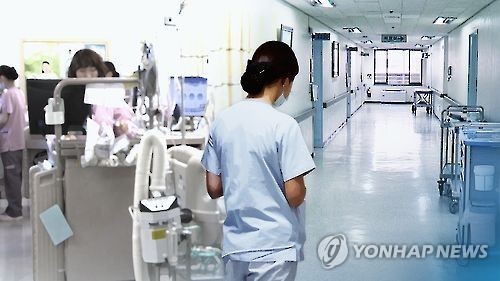Medical staff alerted of common practices now made illegal
By 임정요Published : Sept. 27, 2016 - 10:27
Hospitals have put their staff on alert for violations of a new, strong anti-corruption law that prohibits and punishes what have been considered common practices with patients, medical officials said Tuesday.
The law, referred to as the Kim Young-ran law after the former Supreme Court justice who initiated it, bars hospital staff from rearranging the order of appointments, surgeries and other medical services to insert a patient ahead of others or to give favors in selecting rooms for hospitalization. Patients cannot request special favors, and people at both ends of such conduct can be fined and penalized.

The anti-corruption law, to become effective from Wednesday, is the most comprehensive and in-depth so far in illegalizing free meals, gifts and other forms of activities between people whose personal gains or interests are involved. It applies mostly to public officials, journalists and schoolteachers.
In the case of medical facilities, those operated by the state, provinces and cities as well as university hospitals come under the law.
"Patients at a majority of university hospitals usually have to wait for months to see a doctor, get tested or to have surgery," an official said. "There were many requests to push up the dates, but the rule now is that we have to refuse all such requests."
Staff members have also been warned about meeting with people from pharmaceutical companies and public officials, especially when having a meal or accepting gifts, to stay within legal limits. The law sets a general three-five-ten limit -- 30,000 won ($27) for meals, 50,000 won for gifts and 100,000 won as presents for weddings or condolence money for funerals.
This stipulation effectively restricts patients from giving gifts of appreciation to medical staff before or after treatment, officials said.
"We have conducted education sessions a number of times both online and offline about the wrongful exchange of favors under the anti-corruption law," an official at Seoul National University Hospital said. "We do not expect serious problems because the staff is well aware of the law, but we posted guidelines throughout the hospital to seek cooperation from patients and their caretakers." (Yonhap)
In the case of medical facilities, those operated by the state, provinces and cities as well as university hospitals come under the law.
"Patients at a majority of university hospitals usually have to wait for months to see a doctor, get tested or to have surgery," an official said. "There were many requests to push up the dates, but the rule now is that we have to refuse all such requests."
Staff members have also been warned about meeting with people from pharmaceutical companies and public officials, especially when having a meal or accepting gifts, to stay within legal limits. The law sets a general three-five-ten limit -- 30,000 won ($27) for meals, 50,000 won for gifts and 100,000 won as presents for weddings or condolence money for funerals.
This stipulation effectively restricts patients from giving gifts of appreciation to medical staff before or after treatment, officials said.
"We have conducted education sessions a number of times both online and offline about the wrongful exchange of favors under the anti-corruption law," an official at Seoul National University Hospital said. "We do not expect serious problems because the staff is well aware of the law, but we posted guidelines throughout the hospital to seek cooperation from patients and their caretakers." (Yonhap)









![[Kim Seong-kon] Democracy and the future of South Korea](http://res.heraldm.com/phpwas/restmb_idxmake.php?idx=644&simg=/content/image/2024/04/16/20240416050802_0.jpg&u=)







![[KH Explains] Hyundai's full hybrid edge to pay off amid slow transition to pure EVs](http://res.heraldm.com/phpwas/restmb_idxmake.php?idx=652&simg=/content/image/2024/04/18/20240418050645_0.jpg&u=20240418181020)

![[Today’s K-pop] Zico drops snippet of collaboration with Jennie](http://res.heraldm.com/phpwas/restmb_idxmake.php?idx=642&simg=/content/image/2024/04/18/20240418050702_0.jpg&u=)